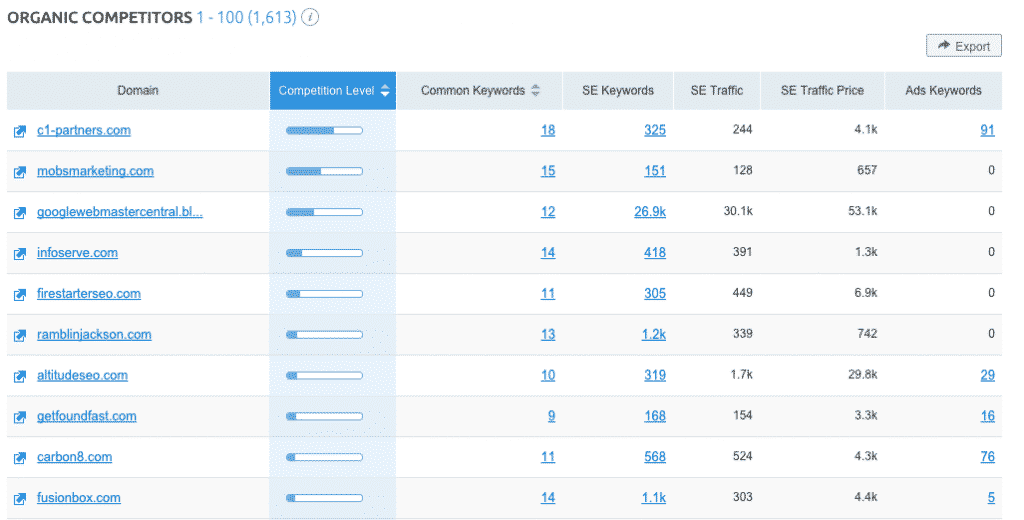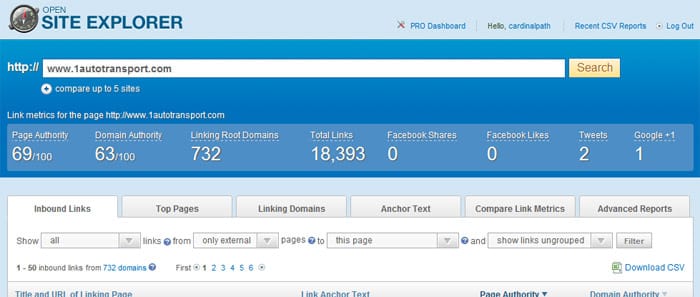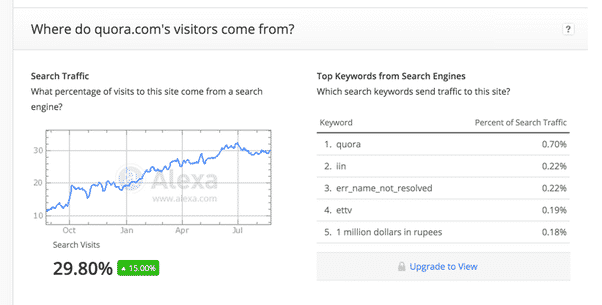SEO Hack: Steal from your competitors
Many a time we are consulted by potential clients who throw a bunch of money keywords at us.
These are keywords that take months, if not years to rank for, in ordinary circumstances.
And then they utter those magic words that we knew were going to pop out of their mouth.
‘How soon can you get us ranked’?
A few years back, we would have refused to accept their business because there are no guarantees in SEO, right?
Wrong!
After spending months analyzing some of the top websites in a particular niche and piggybacking their SEO strategies, we discovered that we were trying to reinvent the wheel all this while.
Business, be it online or in the offline world works on a set of fundamental rules.
One of the most important ones is to keep a close watch on what your competition does.
In the online world, that’s precisely what most of the SEO companies are guilty of ignoring.
Without mincing words, why do SEO yourself when you can steal from your competition?
Oh yes, you can steal their traffic, their links, and their strategy and improve upon it.
This is so effective that you’d no longer need to spend months or years doing the groundwork.
It’s all there, right in front of you on a platter waiting for you to pick up.
Does it sound overwhelming? Here are some hacks to get you going.
Step One: Become the snoop
The first and most crucial aspect of the plan is to decide which competitor to steal from. This is where you can easily go wrong as well. On one side of the spectrum, you will have the big guys; the goliaths, the big brands who can attract the best links even if they sneeze.
And on the other end of the spectrum, you will have the small businesses that have collected links over years with word of mouth and goodwill. Neither is your competition.
To find the right competition, we use one of the most popular free SEO tools in the world, SEMRUSH.
And it is ridiculously simple to do it.
Log on to SEMRUSH, enter your domain address, click on Domain analytics, Organic research and you’ll see a bunch of data on your screen. The most important one, in this case, is your organic competitors.
This will show you the competition level, the number of keywords they rank for and their estimated traffic.
Ignore your topmost competitors and your lowest possible competitor. Find someone that’s closer to you, but a little ahead in terms of backlinks and traffic.

Step two: Steal their backlinks
Opensiteexplorer.com is another great free tool that lets you download all the incoming backlinks to your competitors’ website in a spreadsheet. Now analyze and sort these links according to the domain metrics starting with the highest ones. This is where you are going to see those hidden nuggets that are helping them rank for even the most challenging keywords.
They might have acquired links from domains with a Domain Authority of more than 90. And it’s not going to be easy to acquire those same links.
But this is where you can get cues on how they acquired those links in the first place.
Was it via an excellent piece of content? Did they run a case study?
What is the title of the article that they got linked for?
These are all important clues on how your competition is approaching link building. You have to pick cues and reverse engineer it.
It is not easy but it’s not impossible either.

Step three: Keyword Stealing
Keyword research sucks big time. We know that. You can spend hours and hundreds of dollars trying to find a low competition keyword only to realize that it’s not even worth the effort because it’s being dominated by the big guys.
That’s why stealing keywords from competitors are so much fun!
The tool that we use for it is Alexa.
We know that Alexa is not free. But there’s a free trial plan that you can subscribe to and then cancel the subscription once you have downloaded the data you need. Psst…dont tell anybody that we told you this.
So, it’s the same drill. Head to Alexa and then open their Site Info Tool, plug in the details of the competition. You instantly get a lot of important data like their organic traffic, the top keywords that they rank for and the amount of search traffic that is generated from that keyword.
There’s another amazing tool in the Alexa Dashboard called ‘Competition Keyword Matrix’ that allows you to enter as many competitor website URLs as you wish and get keyword details for all of them at once.
Once you select a few keywords based on their traffic levels, go to Keyword difficulty tool in Alexa and enter these keywords along with your site. Based on their custom metrics, Alexa will give you an estimated idea of how easy or how difficult it is going to be to rank for these sites.

Step four: Steal their content
Oh, we can’t stop the bandits in us, can we? Head over to Buzzsumo, plug in your competition to get an idea of the topmost posts on their websites. These are your ideas. You need to hack these and improve it to make a better and updated version.
If their topmost post is 1000 words, write 2000 words on the same topic with more industry relevant case studies and top-notch research. Cover their entire article, use the same structure if need be, but make it more detailed.
Use the Google related search box to find ideas that are closely linked to the same topic and that you can add to the article.

Step five: Iron out the crevices
Last but not the least, it is time to iron out the crevices. Check your competitors’ page speed using Google’s Pagespeed tool and compare it with yours. If their site is faster than yours, then it is time to improve your page load times.
Stealing from your competition isn’t a cakewalk. But it’s a lot easier than doing SEO from scratch.
To help speed up things, you will need to use some of the topmost SEO tools used by industry leaders.
Our personal favourites are Buzzsumo, Spyfu, Ahrefs, SEMRUSH, Opensiteexplorer, Google Speed Test and Woorank.
This is not the most exhaustive list of tools you can use but its close. We hope that this post helps you tap into your competition and make the most of their SEO strategies.















